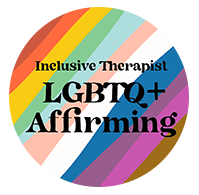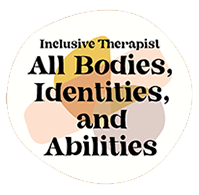Services
Therapeutic Modalities

Emotionally Focused Therapy:
Emotionally Focused Therapy offers a map of attachment science to work in an organic, on-target way to help clients with trauma, anxiety, and depression.
To that map, add the wisdom of 30 years of clinical experience and outcome studies on Emotionally Focused Therapy and you have the right way to tune into clients’ emotions and help them shift from numbing or agitation into emotional balance and the ability to trust the self and engage fully with others.
This therapy developed by Dr. Sue Johnson was developed initially for couples but our therapists apply this method to individuals and families as well.

Expressive Art and Play Therapy:
Play therapy is a highly effective therapeutic process which assists children, teens, and even some adults prevent or resolve difficulties and achieve optimal growth and development.

EMDR:
EMDR in the media is typically associated with trauma primarily, but did you know it can help you overcome strong, overwhelming emotions? How about that it can help lessen the fear triggered by a phobia? Bi-lateral stimulation turns on the parasympathetic response in the brain and is used during EMDR to help you feel calm. It can also help you truly address and release a negative long-standing or “core belief” you’ve held about yourself and release what no longer serves you. EMDR enables people to health from symptoms of emotional distress that result from disturbing life experiences. May studies have been conducted and support the benefits of EMDR therapy which has replaced other modalities that address issues that used to take years to resolve. It heals the mind and allows the body to recover from events the body perceives as stressful.

Integrating East and West:
The integration of breath work, mindfulness, and meditation are an integral part of Pranic Psychotherapy. This is often used to help alleviate psychological ailments in the body such as stress, anxiety, trauma, addiction, phobias that manifest in the body through the movement of the underlying energy bodies.
This involves turning your inward focus to the experiences in the present moment, such as emotions, thoughts, and sensations in the body. Awareness and attention to the breath creates a sense of relaxation and inner calm. It can connect you more deeply to your sense of spirituality and increase overall joy.

Developmental Needs Meeting Strategy (DNMS)
You might have heard someone use the term “parts work” or “inner-child work” and what they are referring to are types of “ego states” therapy which addresses the many “parts” of our complex personalities and how they are perceived by others, and hence how we relate to others. DNMS recognizes that not everyone has an easy time attaching to caregivers or trusting them, because there might have been traumatic incidences associated with their interactions or the caregiver might have been unable to meet the emotional needs of the child due to their own unfortunate life circumstances. This then plays out in personality characteristics that mimic the behaviors the child “imprinted” in response to the interactions with the caregiver. DNMS is used to get you “unstuck” by meeting the needs that were not met in the past. Through DNMS the therapist helps to mobilize a team of “internal resources” that provide the client with support, compassion, empathy, and radical acceptance that were never able to be given by their caregivers. DNMS can be used as a stand-alone intervention or alongside EMDR or Brainspotting Therapy.

Brainspotting:
Brainspotting can be a rapid, effective type of therapy. In contrast to ongoing talk therapy, you can expect Brainspotting to be more short term. Some clients find their issue resolved after just one or two Brainspotting sessions. Others find Brainspotting to be more adjunctive, and use regular talk therapy to further process and enhance progress made in a Brainspotting session.
Brainspotting was initially developed as a useful treatment for trauma. But, this type of therapy can be helpful in any situation where thinking can get in the way of performance, such as creativity or sports performance. It’s great for the overthinkers, and those with high anxiety, because it bypasses the “thinking” cortex of your brain. Brainspotting allows for nonverbal processing, since you can talk as much or as little as you want. Just focusing your thoughts on the issue at hand, and noticing your bodily sensations as you are doing it, is a great alternative to traditional talk therapy. It is especially helpful if you’ve gotten “stuck” on an issue or feel like something is holding you back from moving forward or being more successful. Brainspotting is also great for those who work in a field where they can’t talk about their job due to security or confidentiality concerns.
If you are experiencing the symptoms of the following diagnosis, brainspotting may be for you.
- Anxiety
- Attentional Issues
- Depression
- Peak Performance
- Post Traumatic Stress Disorder (PTSD)
- Many other mental health symptoms

Trauma-Focused CBT (TF-CBT) :
TF-CBT is an evidence-based treatment for children and adolescents impacted by trauma and their parents or caregivers. It is a components-based treatment model that incorporates trauma-sensitive interventions with cognitive behavioral, family, and humanistic principles and techniques. TF-CBT has proved successful with children and adolescents (ages 3 to 18) who have significant emotional problems (e.g., symptoms of posttraumatic stress disorder, fear, anxiety, or depression) related to traumatic life events. It can be used with children and adolescents who have experienced a single trauma or multiple traumas in their lives.
Contact Us
Follow Us
Opening Hours
Mon-Fri: 8 AM - 5 PM
Sat-Sun: 8 AM - 2 PM
Phone
(714) 814–3336
info@innerwisdompsych.com






